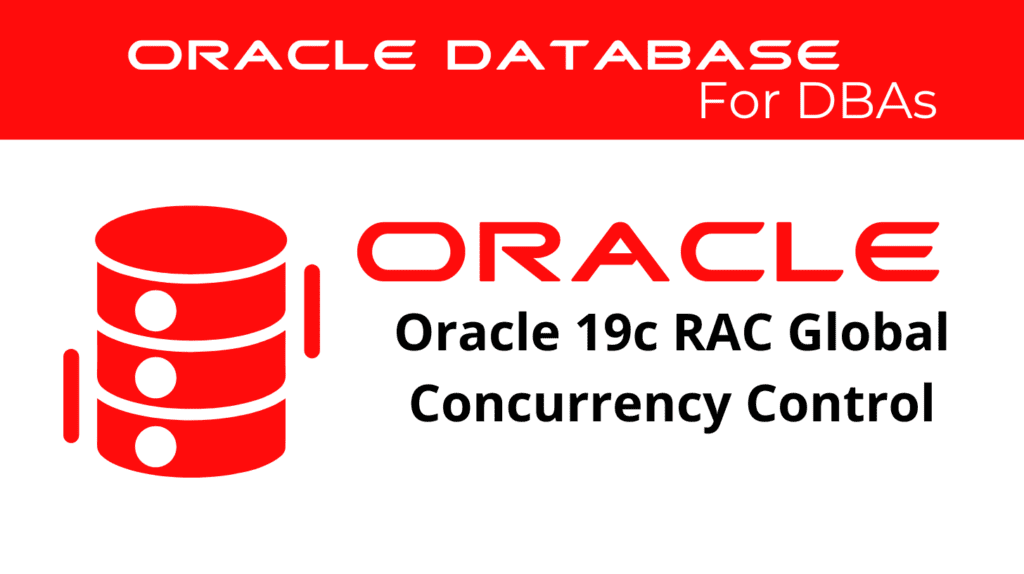
Managing concurrency in Oracle 19c RAC (Real Application Clusters) is crucial for ensuring data consistency and integrity across multiple nodes. This article will delve into the key aspects of concurrency control, explore the role of global locks, and discuss how Oracle 19c RAC maintains data integrity. By the end, you will have a comprehensive understanding of how to manage concurrency in an Oracle RAC environment.
Understanding Concurrency Control
Concurrency control is a fundamental aspect of multi-node database systems like Oracle RAC. It ensures that multiple transactions can occur simultaneously without causing data inconsistencies. Effective concurrency management prevents conflicts and maintains the integrity of the data.
Mechanisms of Concurrency Control
Oracle RAC employs several mechanisms to manage concurrency, including:
Locking Mechanisms
Locks are used to control access to data. Oracle RAC utilizes various types of locks, such as:
- Row-level Locks: These locks apply to individual rows in a table, allowing multiple transactions to access different rows simultaneously without conflict.
- Table-level Locks: These locks apply to entire tables, preventing other transactions from accessing the table during the operation.
Multi-Version Concurrency Control (MVCC)
MVCC allows multiple versions of data to exist simultaneously. This mechanism helps maintain a consistent view of the data for each transaction, thereby reducing the need for locks and improving performance.
Benefits of Concurrency Control
Effective concurrency control offers several benefits, including:
- Improved Performance: Allowing multiple transactions to proceed simultaneously increases system throughput.
- Data Integrity: Ensures that all transactions are executed in a manner that maintains the accuracy and consistency of the data.
- Reduced Conflicts: Minimizes the chances of conflicts and deadlocks, ensuring smooth operation of the database.
Concurrency Control – Ensuring Data Consistency
Data consistency is crucial in a distributed environment like Oracle RAC. Consistency ensures that all nodes have the same view of the data at any given time, which is essential for accurate transaction processing.
Role of Global Locks
Global locks play a vital role in maintaining data consistency. They ensure that any changes made to the data are propagated to all nodes in the cluster, thereby keeping the data synchronized.
Concurrency Management – Types of Global Locks
Oracle RAC uses various types of global locks, such as:
- Global Enqueues: These locks manage access to shared resources, ensuring that only one node can modify a resource at a time.
- Global Cache Service (GCS) Locks: These locks manage the distribution and consistency of cached data across nodes.
Implementing Global Locks
To implement global locks effectively, administrators need to:
- Monitor Lock Activity: Regularly check the status of global locks to identify and resolve potential conflicts.
- Optimize Locking Strategies: Use appropriate locking mechanisms based on the nature of transactions and data access patterns.
- Tune System Parameters: Adjust Oracle RAC system parameters to optimize lock management and minimize contention.
Managing Data Integrity
Data integrity in Oracle RAC ensures that data remains accurate and reliable throughout its lifecycle. Effective concurrency management and the use of global locks are critical components of maintaining data integrity.
Techniques for Data Integrity
Several techniques help maintain data integrity in Oracle RAC, including:
- Data Validation: Implementing checks and constraints to ensure data accuracy.
- Transaction Management: Using transactions to group operations, ensuring that either all operations succeed or none do.
- Replication and Backup: Regularly replicating and backing up data to prevent data loss and ensure recovery.
Concurrency Management – Monitoring and Auditing
Continuous monitoring and auditing are essential for maintaining data integrity. Administrators should:
- Use Oracle RAC Monitoring Tools: Utilize tools like Oracle Enterprise Manager to monitor system performance and identify issues.
- Conduct Regular Audits: Perform periodic audits to ensure compliance with data integrity policies and standards.
Conclusion
Managing concurrency in Oracle 19c RAC is essential for ensuring data consistency and integrity across multiple nodes. By understanding and implementing effective concurrency control mechanisms, utilizing global locks, and maintaining rigorous data integrity practices, administrators can ensure the smooth operation and reliability of their Oracle RAC environments. Mastering these aspects of concurrency management, you will be well-equipped to handle the complexities of Oracle 19c RAC and maintain a robust and efficient database system.
See more on Oracle’s website!
Be Oracle RAC and GRID Certified Professional, this world is full of opportunities for qualified DBAs!





